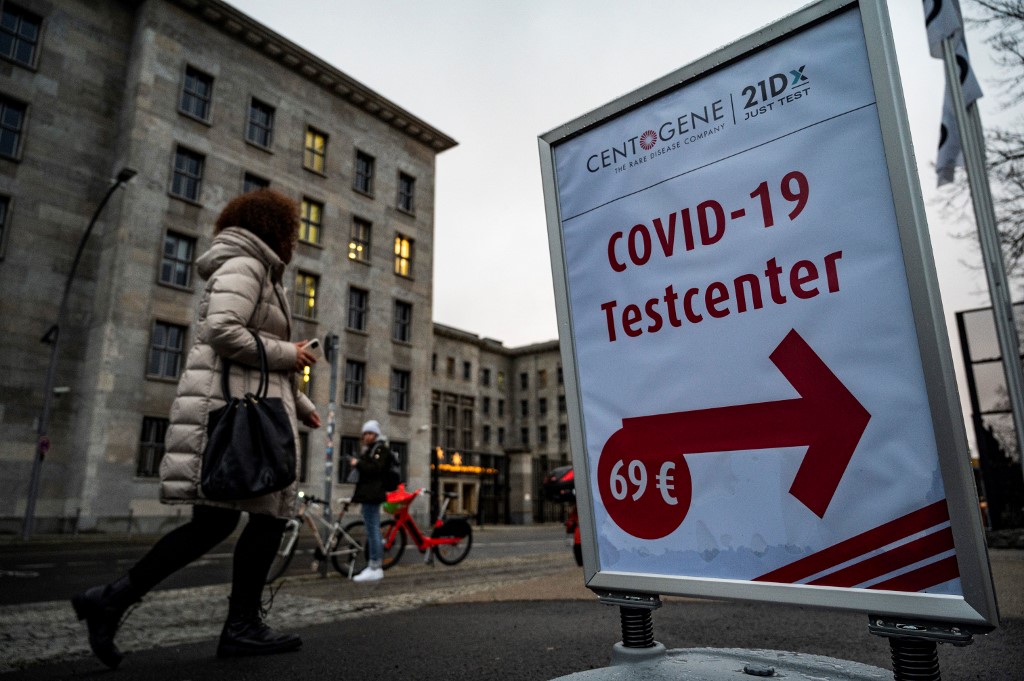
Germany is introducing tighter rules for travellers returning to the country, due to the risk of new coronavirus mutations currently spreading in some parts of the world.
According to the German health ministry, starting January 14, anyone entering the country from an area of risk must be able to prove that they are not infected with the coronavirus not later than 48 hours after entering the country.
Those arriving from the worst affected countries must also present a negative test result prior to entering Germany. These include the UK and South Africa, two places where highly transmissible variants of the virus were first detected.
German Health Minister Jens Spahn said that "travelling abroad to risk areas is not in keeping with the pandemic situation. Those who nevertheless do not want to forego this must in future be tested on their return. Virus mutations are an additional danger to our health. We must prevent a spread in Germany as much as possible."
Germany will continue its existing quarantine rules for travellers. After entering the country all travellers must stay in quarantine for ten days unless they can provide a negative test, in which case quarantine is shortened to five days.
Germany's Bavaria is set to make high-protection masks mandatory for public transport and shopping
Starting next Monday, people in the German state of Bavaria will be required to wear an “FFP2” mask on public transport and while shopping.
The FFP2 filtering mask is standardized in Europe. It differs from surgical masks in that it usually has four layers and is meant to provide a high degree of protection. FFP2 masks are often used in construction, agriculture and by healthcare workers. An equivalent is the N95 mask.
"We want to make everyday life safer," Bavarian Prime Minister Markus Söder said Tuesday. The southern German state, which borders Switzerland and Austria, is especially hard-hit by the virus.
The Covid-19 situation in Germany remains serious. Last week, Germany's government announced an extension of the country's national lockdown until the end of the month and will further tighten restrictions on movement and contact in order to curb the spread of the virus.
"It is not said that the tighter lockdown by the end of January has pushed Covid-19 back so far that we can relax again," said vice-chancellor and finance minister Olaf Scholz in an interview with Neue Osnabruecker Zeitung newspaper. "Anyone who promises that now is acting recklessly and destroying trust."
South Africa variant: Meanwhile, the southwest state of Baden-Wuerttemberg announced Tuesday that it had identified its first cases of the coronavirus variant first spotted in South Africa, according to the Ministry of Social Affairs.
"These persons are all in surveillance, so we do not assume that beyond that, we have more infections," Stefan Brockmann, Health Ministry spokesman in Baden-Wuerttemberg, said in an interview on public broadcaster SWR.
New cases: On Wednesday, the national agency for disease control and prevention, the Robert Koch Institute, reported 19,600 Covid-19 cases, bringing the total to 1,953,426.
The death toll increased by 1,060, and now stands at 42,637.
Germany is in one of "gravest phases" of the pandemic, says health minister
Speaking in the German parliament, Germany's Health Minister Jens Spahn said the country was in one of the "gravest phase so far" of the coronavirus pandemic, adding that “we have to bring down the number of infections and deaths which are still too high.” But he said that the situation in Germany's intensive care units is slowly improving.
Spahn also defended the united European approach to tackling Covid-19.
"No country, no party can defeat this virus alone," he said. "While nationalism grows in other countries, Europe is growing together."
Spahn said Germany had benefited from combining forces with the rest of the European Union in terms of vaccine development and manufacture, but said the limiting factor was production capacity.
According to Spahn, more than 750,000 Germans have now received the shot and he promised everyone in the country would be offered vaccination by the summer.
Kakvo je tvoje mišljenje o ovome?
Učestvuj u diskusiji ili pročitaj komentare





 Srbija
Srbija
 Hrvatska
Hrvatska
 Slovenija
Slovenija







